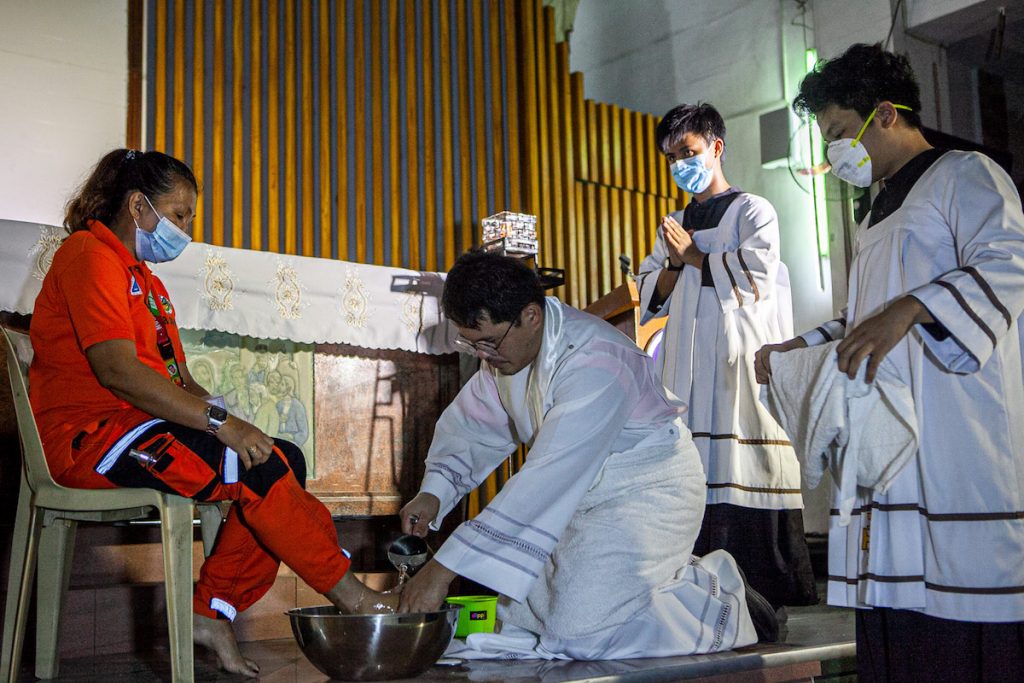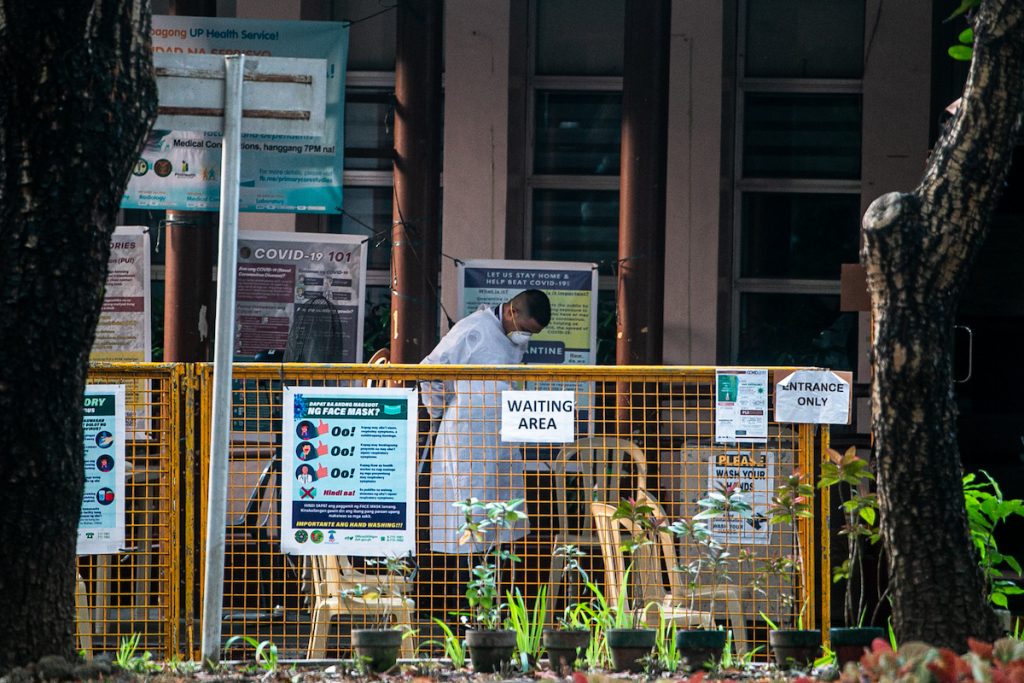“Why me?” asked Elizabet Labro Afuang when told that she would be part of the ritual washing of the feet during the celebration of the Lord’s Supper on Holy Thursday.
Afuang is a member of a health emergency response team in the village of Bagong Silangan on the outskirts of the Philippine capital.
During the Holy Week observance, church leaders honored the “heroic service and sacrifice” of people in the frontline of the global health crisis brought about by the coronavirus pandemic.
Bishop Honesto Ongtioco of Cubao said the resurrection of Christ “is realized in the lives” of the people who offer their own health and life to attend to the sick and the poor.
The prelate said that like Jesus, people working to help flatten the curve have undergone great sacrifices but continue serving.
“Many of us are already exhausted but like the suffering of Christ, it did not end on Good Friday. It led to the resurrection,” said the bishop in his Easter Sunday message.
He said Easter “reminds us that this crisis will not end [on suffering.] There is hope and there is a good future that the Lord promised.”

Archbishop Romulo Valles of Davao, president of the Catholic bishops’ conference, said it is “moving and so heartwarming” to see healthcare workers “trying to save and protect the life of ailing patients.”
He lauded people who manifest “simple acts of appreciation and gratitude to all those who offer their lives so that others may live.”
“Are these not concrete manifestations of the Easter spirit? Looking at all these, isn’t it that our hearts begin to fill up with hope?” he said.
Cross to carry
Afuang said she accepted the call to serve in her village despite the threat of contracting the disease because “this is what I vowed to do and it is my responsibility as a health worker.”
She followed all precautionary measures and protocol to remain safe from the disease, but she was not prepared for the discrimination.
Her neighbors even created an online chat group on social media, spreading rumors that Afuang has been exposed to the disease.
She said she endured it all, “but it pains me to see my children affected by these prejudices.”

Frontline workers have to face not only exhaustion in their work but also threats and attacks.
In the village of Santo Cristo, Rodelyn, a health worker, has to carry her uniform in a bag to go to work.
“There was an incident that I was discriminated against because I work in a hospital,” she said.
One day, when she entered a store to buy snacks, a customer poured alcohol on her without any warning.
“I felt embarrassed and threatened,” said Rodelyn. “The lady told me that I should not go inside a store because I could be infected,” she said.
On April 9, the country’s interior department ordered local government units to enforce anti-discrimination laws to protect people working in the frontline of the pandemic.
“We are alarmed by reports that reach our office on the harassment and discrimination experienced by our frontline workers,” said Interior Secretary Eduardo Año.
“They are the heroes in the midst of the battle against COVID-19 and yet they experience and endure discrimination and harassment,” he said.
The Catholic Church has opened churches and facilities to accommodate frontline health workers who have to go to work amid the lockdown.
In the Archdiocese of Manila, at least 500 frontline workers including doctors, nurses, hospital workers, and policemen are lodged in 36 church-run facilities.
The Association of Major Religious Superiors in the Philippines also offered convents for healthcare workers who need places to rest.
Father Angel Cortez, executive secretary of the association, said at least 15 convents and church facilities offer rooms and spaces for frontline healthcare workers in the capital.
“The church is always open for those who need a roof especially in times of crisis,” said the priest. “Now, we have opened our doors to those people who are trying to protect us,” he added.






